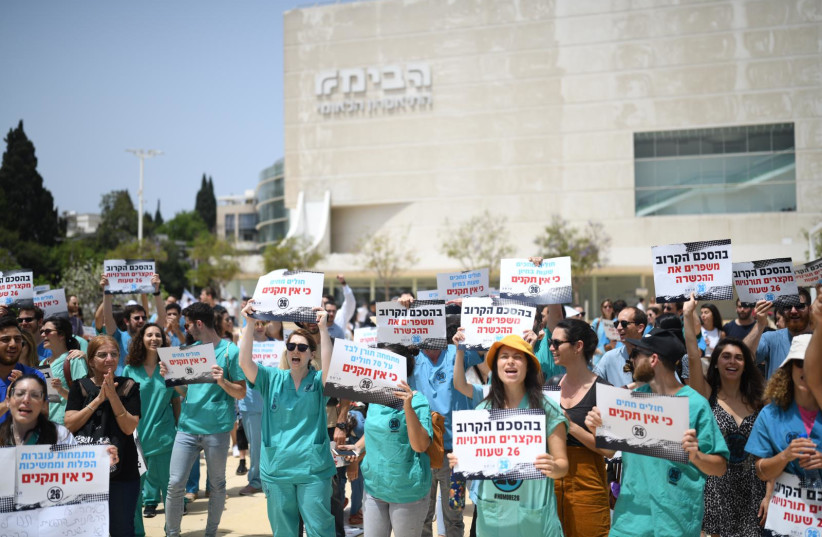In an interview with 103FM on Wednesday morning, Dr. Adina Leshansky, a pediatrician intern in a hospital in the center of Israel, shared the unreasonable schedule she has to work with.
"A lot of people don't understand that beyond 26-hour shifts, we also work full time in the mornings," Leshansky told 103FM. "Sometimes there's time for a break, and sometimes there isn't.
"On the days that I'm on duty, I begin to work at 8 a.m., and sometimes there isn't time for lunch because the hospital is too busy, so I continue working into the night until 8 a.m. the next morning. At the end of the shift, there's a rundown that sometimes lasts an hour or two or even more."
According to Leshansky, every intern legally has to report when they work more than 26 hours, but there are some hospitals that don't work like that.
"I have friends that got told off when they reported," she said. "Many times we don't sign in and continue working. Not only is this reality awful, but there's no one upholding our working conditions."
"Externally, every time this comes up, it's clear to everyone that working 26 consecutive hours is not humane and makes no sense, but a lot of the older doctors say that we're a generation of whiners, and they worked harder than us. They think that just because they worked like that, that's the way to do it. The challenge here is to think outside of the box."

When asked about adding manpower, Leshansky said that they have been given promises of extra manpower for years, but it never happens, while another major problem is the salary.
"Two-thirds of my salary doesn't come from a base full-time salary. I make less than NIS 7,000. The rest of my salary comes from overtime. If the government thinks creatively and changes the salary system, I won't be so reliant on overtime. That way I'll be able to work more night shifts because we have to, we understand that, but there's a way to work night shifts humanely."
Leshansky also discussed the interns' threats of resigning if their shifts aren't shortened.
"We aren't happy to resign, and we don't want to. I worked very hard to get to where I am, I love my job, but next week our permits will expire, and MK Orna Barbivay will need to decide if she will renew it without changes, or if she will answer our demands.
"If she doesn't sign, and the shift shortening plans are not actualized, we will give two week's notice and be forced to resign. Last night we passed 2,000 votes on our petition."
